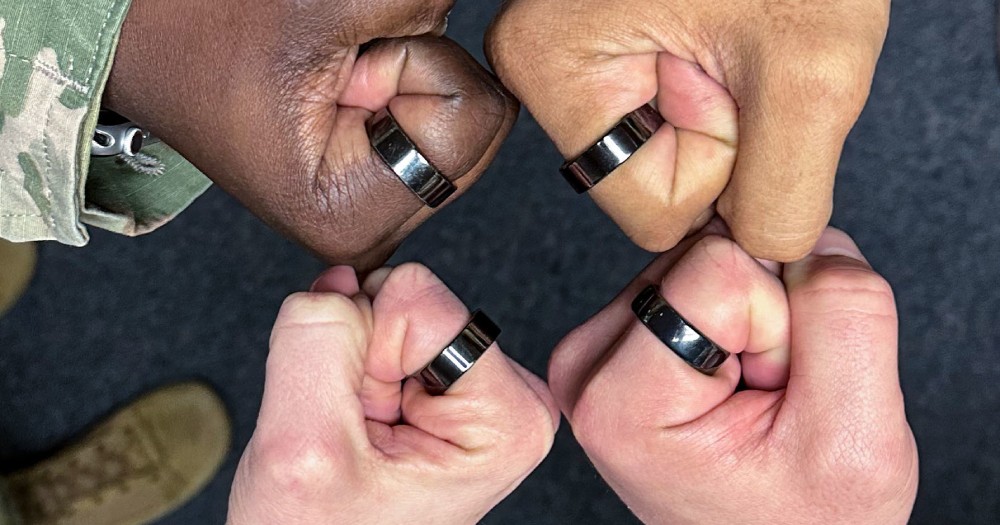Smart ring maker Oura secures a $96M contract with Pentagon

The Pentagon has recently awarded a significant contract worth $96 million to Finnish health technology company Oura. The move is part of the Department of Defense's (DOD) ongoing efforts to leverage biometric technology to enhance the health and wellness of its service members.
The contract covers the distribution of Oura's smart rings, along with a range of data analytics services to help monitor and improve the well-being of military personnel.
How does it work?
Oura's smart rings act as biometric sensors for monitoring various physiological indicators, such as stress levels, recovery, and overall well-being. Under this new contract, the Pentagon will utilize these rings alongside Oura's data analysis services. These services will allow the Department of Defense's health division to act on the biometric information generated by the rings, providing insights on stress, fatigue, and overall health.
According to the official contract announcement, Oura will also offer workforce well-being services, including high-performance medicine, mindfulness training, leadership coaching, and peer-to-peer support. This suite of services is intended to be deployed across 130 military medical facilities to support the entire DHA workforce.
Why does it matter?
The deployment of Oura rings represents a leap forward in how the military approaches health and performance. As noted during the COVID-19 pandemic, when the Department of Defense's Defense Innovation Unit paired Oura rings with AI algorithms, wearable technology has the potential to predict infectious diseases before symptoms appear.
Jeff Schneider, a program manager for that project, highlighted the importance of such technology, saying, "The DOD can use commercial wearables to noninvasively monitor a service member's health and provide early alerts to potential infection before it spreads."
This contract continues the military's investment in ensuring the readiness of its personnel, providing a proactive approach to health that could mitigate risks like infectious diseases, stress-related issues, and fatigue — all of which directly impact the performance and safety of military operations.
The context
The DOD's interest in wearable biometric technology isn't new. Oura rings and similar devices have already been utilized within various military branches. For instance, during the COVID-19 pandemic, the technology was employed as part of the Rapid Assessment of Threat Exposure (RATE) project, aimed at detecting early signs of infection. Similarly, the Air Force distributed Oura rings to graduates of the First Sergeant Academy in 2022, and the Navy gave out 300 rings to sailors and Marines aboard the Essex amphibious assault ship to study fatigue in 2021.
With this new contract running through 2025, Pentagon is poised to lead the way in using biometric technology to maintain the health, readiness, and resilience of its workforce.
💡Did you know?
You can take your DHArab experience to the next level with our Premium Membership.👉 Click here to learn more
🛠️Featured tool
 Easy-Peasy
Easy-Peasy
An all-in-one AI tool offering the ability to build no-code AI Bots, create articles & social media posts, convert text into natural speech in 40+ languages, create and edit images, generate videos, and more.
👉 Click here to learn more


